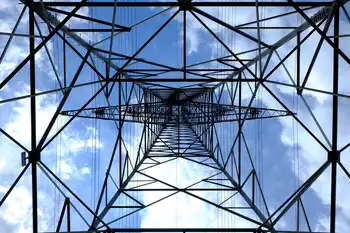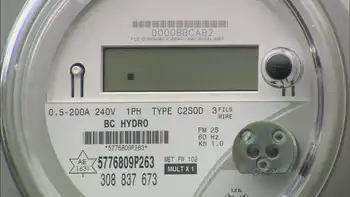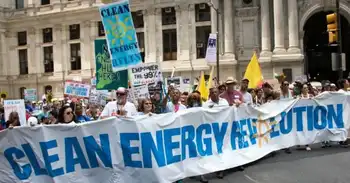Suppliers say U.S. risks losing electric car race
By Reuters
Substation Relay Protection Training
Our customized live online or in‑person group training can be delivered to your staff at your location.

- Live Online
- 12 hours Instructor-led
- Group Training Available
Executives at U.S. auto parts companies gathered for a forum in Traverse City, Michigan, said the U.S. government needs to provide incentives to support the industry until costs for electric vehicles, including plug-in hybrids, fall far enough to make investments profitable.
That process could take up to a decade, executives said, warning that key battery technology for the emerging electric car market will otherwise be dominated by companies from Japan, Korea and China.
"For electric vehicles, nearly all major components come from Asia. We don't want to create another cartel for renewable energy, sustainable mobility," said MaryAnn Wright, who runs the hybrid business of Johnson Controls Inc.
The U.S. auto industry has become increasingly outspoken about the need for the next U.S. administration to dedicate more funding to support electric car development efforts, shifting the focus of policymakers away from hydrogen and ethanol production.
While automakers including General Motors Corp. are racing to take a lead in electrification of vehicles, the bulk of key components, such as next-generation lithium-ion batteries, are supplied by Asian companies.
Toyota Motor Corp., which dominates the global market for gasoline-electric hybrids with its Prius, plans to start producing lithium-ion batteries next year from a joint venture with Matsushita Electric Industrial Co.
Nissan Motor Co. also has joint ventures with NEC Corp. to mass-produce lithium-ion batteries next year.
Lithium-ion batteries - lighter, smaller, longer-lasting and capable of holding more power than the nickel-metal batteries which power the current gasoline-electric hybrids - are used for plug-ins such as GM's heavily-touted Chevrolet Volt, which will be powered entirely by an electric motor and can be charged through an ordinary power socket.
"The role of the local and state governments is going to be the incentives they can provide to companies who want to get into the business and establishing that infrastructure," said Wright, who previously headed hybrid development efforts at Ford Motor Co.
A sharp rise in gasoline prices and a consumer stampede from large trucks and SUVs have made it more urgent for the U.S. automakers to develop fuel-efficient cars.
But investment costs are a big burden to the struggling U.S. automakers and their suppliers, executive say.
U.S.-based auto suppliers lost a combined $10 billion between 2002 and 2007, while Asian suppliers racked up a combined $42 billion profit in that period and European suppliers earned $24 billion, according to restructuring advisory Alix Partners.
In addition, analysts estimate plug-in batteries could add $10,000 or more to the cost of a vehicle, a higher premium on the sticker price than for current gas-electric hybrids.
GM, which plans to limit production of the highly-touted Volt, has indicated it will not make money on the planned 2010 launch of the plug-in hybrid.
Toyota, the world's largest automaker, has plans for more extended real-world testing of a plug-in Prius around the time of the Volt's planned launch.
In June, the U.S. Department of Energy announced it would give $30 million over the next three years to help fund plug-in projects undertaken by Chrysler LLC, General Motors Corp and Ford.
"We must ensure we have a domestic battery supply," Ford's president of North American operations Mark Fields said at the time in urging more substantial government aid.
Arvin Innovation Inc, the auto parts business being spun off from ArvinMeritor Inc., plans to focus in part on electronic control systems and electric motors, aiming to take advantage of the industry's move toward electric and hybrid vehicles.
Chief Executive Phil Martens, speaking to Reuters on the sidelines of the Center for Automotive Research's Management Briefing Seminar, said U.S. government support was crucial for the industry.
"We have to become competitive with worldwide capabilities for fuel economy and emissions, and I think in certain areas we are behind," Martens said.











